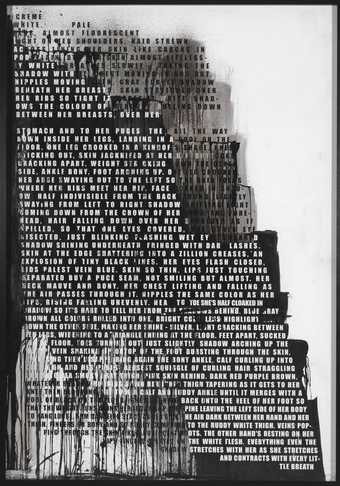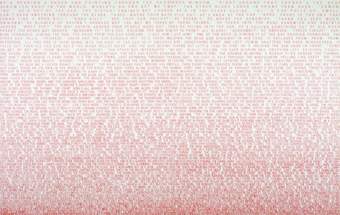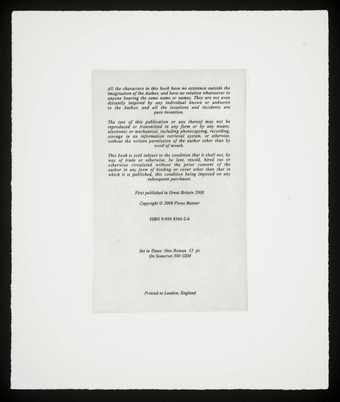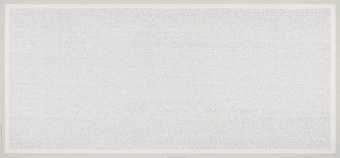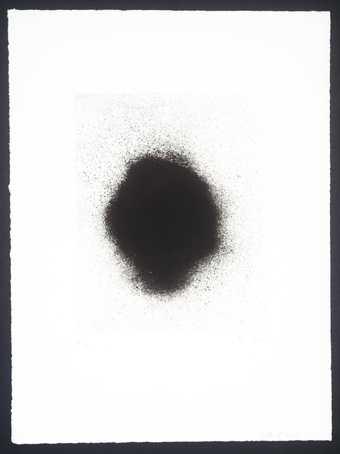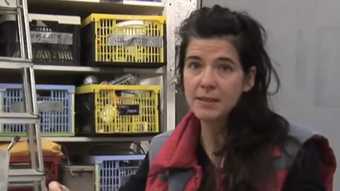For the 2010 Duveen commission Fiona Banner places recently decommissioned fighter planes in the incongruous setting of the Duveen Galleries at Tate Britain.
Fiona Banner is best known for her 'wordscapes', written transcriptions of the frame-by-frame action in Hollywood war films. She has long been fascinated by the emblem of the fighter plane.
Her compulsion to grasp the uncomfortable resonances of these war machines has produced a growing archive of material. From pencil drawings to newspaper cuttings and Airfix model collections of all the fighter planes currently in service, the modesty of her works often contrasts with the heroic connotations of her subject. Here, Banner places recently decommissioned fighter planes in the incongruous setting of the Duveen Galleries.
For Banner these objects represent the 'opposite of language', used when communication fails. In bringing body and machine into close proximity she explores the tension between the intellectual perception of the fighter plane and physical experience of the object. The suspended Sea Harrier transforms machine into captive bird, the markings tattooing its surface evoking its namesake the Harrier Hawk.
A Jaguar lies belly up on the floor, its posture suggestive of a submissive animal. Stripped and polished, its surface functions as a shifting mirror, exposing the audience to its own reactions. Harrier and Jaguar remain ambiguous objects implying both captured beast and fallen trophy.
"I remember long sublime walks in the Welsh mountains with my father, when suddenly a fighter plane would rip through the sky, and shatter everything. It was so exciting, loud and overwhelming; it would literally take our breath away. The sound would arrive from nowhere, all you would see was a shadow and then the plane was gone. At the time harrier jump jets were at the cutting edge of technology but to me they were like dinosaurs, prehistoric, from a time before words." -- Fiona Banner

